Phew! This tea has so many incidents of what a tort lawyer might call "passing off" that I don't know where to begin. Let's start at the top.
A wise man once said, "I won't buy anything from a factory with 'Menghai' in its name, unless it's Menghai Tea Factory." This is sound advice. There are approximately 6.022 x 10^23 tea factories with "Menghai" in their names, and 1.0 of them produce good tea.
So, let us consider "Menghai Pengcheng" (Menghai Peng Chen, at Puerh Shop), a factory so rare and obscure that it isn't even in Babelcarp (at the time of writing!).
Before we consider the name further, allow me an apostrophe. I have much for which to thank my school (probably what would be called a "High School" in American), but of particular note is the fact that they made us read quite a few of the Chinese classics (in translation - we were just babies). This came in particularly handy when strolling on the beach at a conference with a lovely lady who would eventually become suckered into being my wife.
A wise man once said, "I won't buy anything from a factory with 'Menghai' in its name, unless it's Menghai Tea Factory." This is sound advice. There are approximately 6.022 x 10^23 tea factories with "Menghai" in their names, and 1.0 of them produce good tea.
So, let us consider "Menghai Pengcheng" (Menghai Peng Chen, at Puerh Shop), a factory so rare and obscure that it isn't even in Babelcarp (at the time of writing!).
Before we consider the name further, allow me an apostrophe. I have much for which to thank my school (probably what would be called a "High School" in American), but of particular note is the fact that they made us read quite a few of the Chinese classics (in translation - we were just babies). This came in particularly handy when strolling on the beach at a conference with a lovely lady who would eventually become suckered into being my wife.
We studied a bunch of great texts that I honestly believe that most people would benefit from reading (Laozi, Liezi, Mozi, Kongzi/Confucius, some of the Yijing), but my favourite was Zhuangzi, the Daoist chap who wrote really witty material, following the Daodejing. I'm frivolous by nature, and Zhuangzi appeals to me. Near the start, he describes a huge, mythical bird-like creature called the "Peng", which travels bazillions of miles with its huge wings. There is a phrase in it, "Peng cheng wan li", meaning approximately "The peng journeys 10,000 miles". This has come to be a synonym for describing success in Chinese, perhaps a bit like the English "He's come a long way", or "He'll go far".
So, the two characters "Pengcheng" refer to this common saying. I instantly became impressed that the tea factory would name themselves after a phrase in the Zhuangzi, given that my prior assumption is that all tea factories are run by oily merchants with little interest in the classics. (Harsh, but fair.) However, my dear wife brought me down to earth, saying that the phrase "Peng cheng wan li" was in such common use that it would be like someone using a common Shakespearean phrase, probably without knowing its origins.
It's minutiae like this that divert me for hours.
So, the tea.
So, the two characters "Pengcheng" refer to this common saying. I instantly became impressed that the tea factory would name themselves after a phrase in the Zhuangzi, given that my prior assumption is that all tea factories are run by oily merchants with little interest in the classics. (Harsh, but fair.) However, my dear wife brought me down to earth, saying that the phrase "Peng cheng wan li" was in such common use that it would be like someone using a common Shakespearean phrase, probably without knowing its origins.
It's minutiae like this that divert me for hours.
So, the tea.
This has been labelled "yuanyexiang", translated characterwise as "primeval wild aroma" by the mighty Babelcarp. I think this time, I'm with the Puerh Shop translation, which has "prairie bouquet", noting that "yuanye" is a compound, which refers to open country, the champagne or campania. My Chinese language book wisely states, "Ask not how many characters a person knows in Chinese, but how many compounds." So, I would translate "yuanyexiang" as "Open-country aroma" or something along those lines. It's the scent of the great, unkempt outdoors.
This is the second instance of passing-off for this tea, because it cannot be coincidence that it refers to an appelation made rather famous by Shuangjiang Mengku, and others.
Finally, in the centre of the bing, we have the ubiquitous characters: pu'er wang [pu'er king].
Before we even look at the leaves (above), we have a whole mountain of prejudice, bias, and a priori assumptions to overcome. It is overwhelmingly likely that this tea is poor. I would be happy to be proven wrong... but Ouch's Menghai rule (see above) is seldom wrong. Let's find out.
This is the second instance of passing-off for this tea, because it cannot be coincidence that it refers to an appelation made rather famous by Shuangjiang Mengku, and others.
Finally, in the centre of the bing, we have the ubiquitous characters: pu'er wang [pu'er king].
Before we even look at the leaves (above), we have a whole mountain of prejudice, bias, and a priori assumptions to overcome. It is overwhelmingly likely that this tea is poor. I would be happy to be proven wrong... but Ouch's Menghai rule (see above) is seldom wrong. Let's find out.
"A true exciting pu'er experience!", writes the product web-page. "One thing we are talking about a lot is the aging potential if a tea is worth keeping, you can be sure this one got it, and it shows." (sic)
The leaves are small, with compression typical of a machine-pressing. They are a touch dark, and the few tips present in the blend have turned a beige colour, placing it around the 4-5 year mark, which may not come out too well in the photograph. The aroma is decent: full sweetness, with a body of grain. It has some spicy greenness about it that I usually associate with cheaper teas.
The first infusion is cloudy orange. The aroma is generically sweet, but in the mouth it is instantly and aggressively green. The product page notes that the leaves are from Bulang, and I can believe it, because this tea is heavy going. It isn't punchy, clean, and fresh, like the 2009 Nadacha "Bulang Qiaomu", instead being the brutal harshness of the plantation. It's raw, and it hurts the throat.
The leaves are small, with compression typical of a machine-pressing. They are a touch dark, and the few tips present in the blend have turned a beige colour, placing it around the 4-5 year mark, which may not come out too well in the photograph. The aroma is decent: full sweetness, with a body of grain. It has some spicy greenness about it that I usually associate with cheaper teas.
The first infusion is cloudy orange. The aroma is generically sweet, but in the mouth it is instantly and aggressively green. The product page notes that the leaves are from Bulang, and I can believe it, because this tea is heavy going. It isn't punchy, clean, and fresh, like the 2009 Nadacha "Bulang Qiaomu", instead being the brutal harshness of the plantation. It's raw, and it hurts the throat.
There is a sweet, grain character that was in the dry aroma, but not too much else. It reminds me of regular production Xiaguan, rather than their specials. At $23, it isn't too expensive, and Puerh Shop deserves credit for that.
Is it good for aging? Well, it is brutally astringent. If you believe that's what ages well, then go for it. I tend to look for some content and complexity underneath the brutal power, and this tea just seems too raw, too rough, too nasty, and with too few other contents.
After five infusions at home, I tire of its one-dimensional agony, and take the remainder to work where it serves as a low-maintenance background tea. Thanks to GV for passing this one on to me, as it's nice to sample from all ends of the spectrum.
Remember the "Rule of Menghai" and you won't go far wrong!
Is it good for aging? Well, it is brutally astringent. If you believe that's what ages well, then go for it. I tend to look for some content and complexity underneath the brutal power, and this tea just seems too raw, too rough, too nasty, and with too few other contents.
After five infusions at home, I tire of its one-dimensional agony, and take the remainder to work where it serves as a low-maintenance background tea. Thanks to GV for passing this one on to me, as it's nice to sample from all ends of the spectrum.
Remember the "Rule of Menghai" and you won't go far wrong!

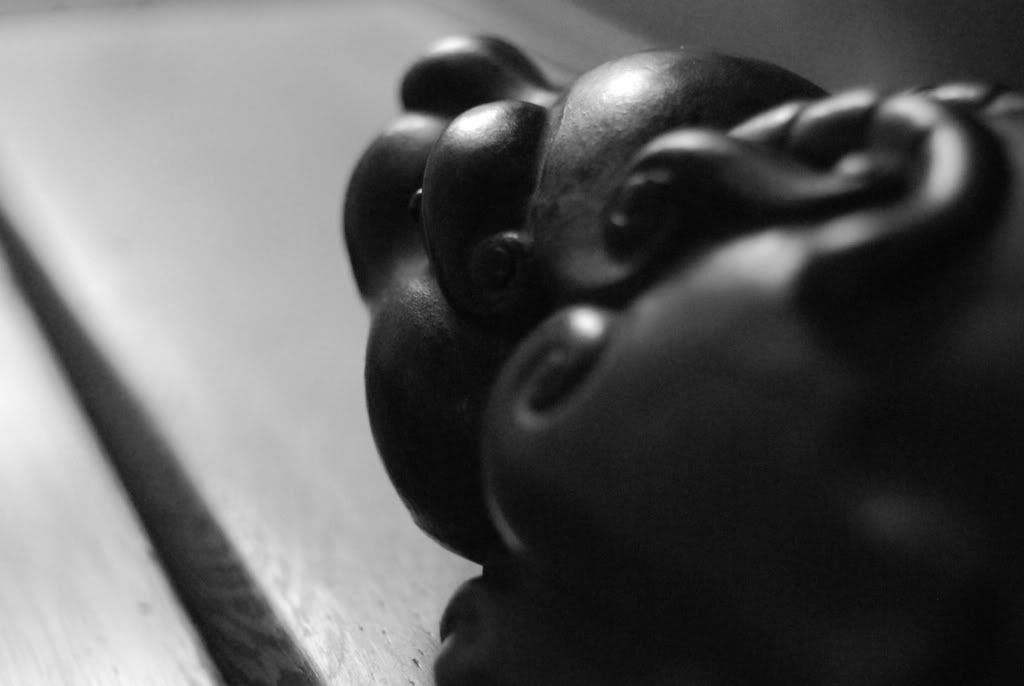
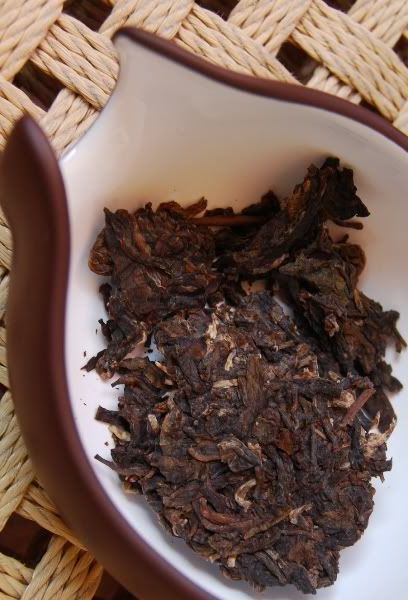
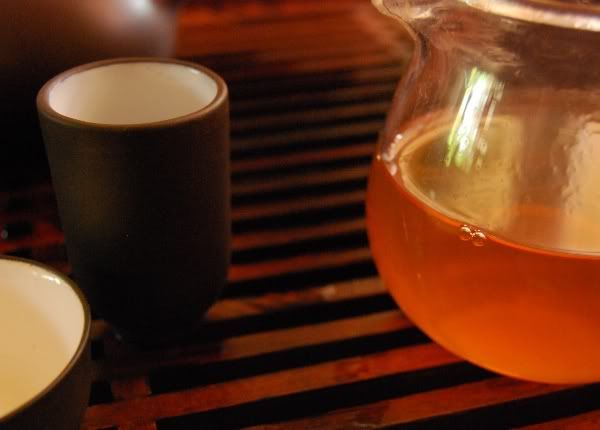
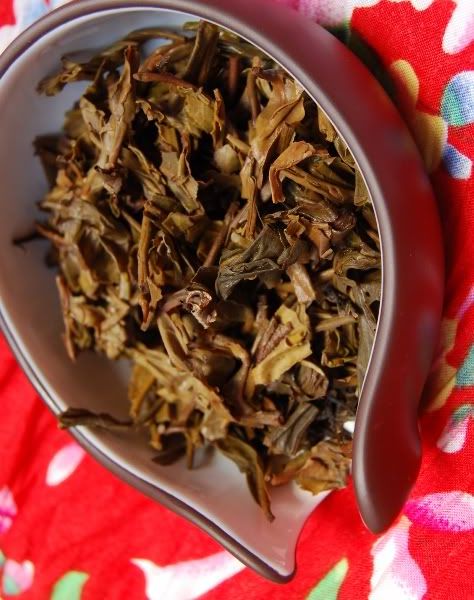
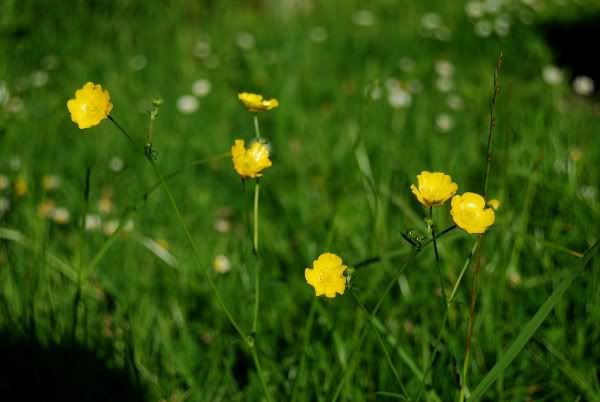
17 comments:
Ask not how many characters a person knows in Chinese, but how many compounds.
Thanks, I needed that! And thanks also for alerting me to Peng Cheng - who knows, they may eventually amount to something...
I guarantee that everyone who ever studied Chinese in the history of the world for a period of at least one week knows more compounds than I do, for the record ;)
Paradoxically, the same book goes on to plot the number of individual characters used in an increasingly large corpus of "daily" Chinese text.
The curve is amazing: learn the most common 500 Chinese characters, and you have covered approx. 2/3rds of the corpus of "daily" text surveyed, leaving 1/3rd of the characters unknown.
Learn the next-most common 500 characters (i.e., characters 501 to 1000 in order of decreasing frequency of occurrence in the corpus surveyed), and you have covered approx. 2/3rds of the remaining 1/3rd text. Or, you now know 2/3rds + 2/9ths of the text covered, leaving 1/9th of the characters unknown.
Learn the next-most common 500 characters (1001 to 1500) and you have covered approx. 2/3rds of the remaining 1/9th, leaving 1/27th of the characters unknown.
It's an amazing curve, and was published somewhere in the 70s or thereabouts. (I assume it's legitimate - they cite the exact corpus surveyed, which comprised certain newspapers, modern novels, magazines, etc.)
Toodlepip,
Hobbes
Molar conversion! Awesome.
*back to lurking*
Hi, Hobbes;
A great review as always.
FYI, Pengcheng Tea factory was considered as a spin-off, as it was operated by an ex-manager, Du and a few ex-key-employees of Menghai Tea Factory, like many small tea factories in the area, eg. 6FMT, Guoyang, Haiwan and etc.
I agree none of these factories has the power to overturn mighty Menghai Tea Factory.
Hooray for the Zhuangzi, my favorite book ever!
"A state in which 'this' and 'that' no longer find their opposites is called the hinge of the Way."
I think I could hang out with that guy!
JenB - Good spotting!
Good knowledge - thanks, Jim!
Zero - I recall Daoists of his era were all in favour of wine-and-the-moon, so I bet they were great company :)
Toodlepip,
Hobbes
I don't seem to find the cake on the puerhshop website -- is it gone?
Comparing anything 05 with an 09 tea is going to be an unfair comparison though -- an 05 tea will most likely have lost its initial fragrance and not having enough time to age -- it's that awkward phase of 4-5 years old tea that really is not very good for consumption.
I'm not saying, btw, that this tea might have been a lovely, wonderful, etc tea in 05. Rather, I'm just saying that an 05-05 comparison (or even an 05-06 comparison) might be a bit more equitable.
Dear MarshalN,
While the link lasts, the vendor page for the 2005 tea that I wrote about in this article may be found here.
You mention a comparison with a 2009, but I don't see comparison anywhere in my article - neither 05-09 or 05-05. Wherefore do you mention it?
Best wishes as ever,
Hobbes
P.s. I have quite a few cakes that are really rather pleasant after 4-5 years - a little darker, richer, denser, sometimes even with hints of wood. It's not all bad news. ;)
...unless you're referring to my comparison with the 2009 Nadacha Bulang!
This Pengcheng tea is just plain bad - empty and rough - and it is on that basis that I compare it with another cake (the 2009 Nadacha cake, in this case). This is cheap tea, made poorly, and strikes me as "filler" - while the Nadacha, even though from a different year, is a recent example in memory of a more decent cake.
Best wishes,
Hobbes
Thanks for the link. It's hard to find things sometimes on puerhshop.
A lot can change for a tea in four years, so I'm just not sure if it's fair to say a tea is not as "clean and fresh" when you're comparing it with a tea that came off the mountain a few months ago.
Just ignore that clause and read the rest of the article, then ;)
Best wishes,
Hobbes
Well, I won't try to clutter up this space further, let's talk on email :)
My professor in university translated lots of Chinese ghost stories and stories of the supernatural.
One test, he had us translate a story of one author's speculation of what happens underneath the path of the Peng's magnificent flight. Suffice it to say, the great bird dropped a feather whose quill was wide enough to ride a horse through. It also dropped something a lot less savory and, according to the narrative, it took the village several days to dig themselves out.
A story about drowning in guano sounds very much in the spirit of Zhuangzi. :)
Toodlepip,
Hobbes
This factory apparently just closed.
Post a Comment